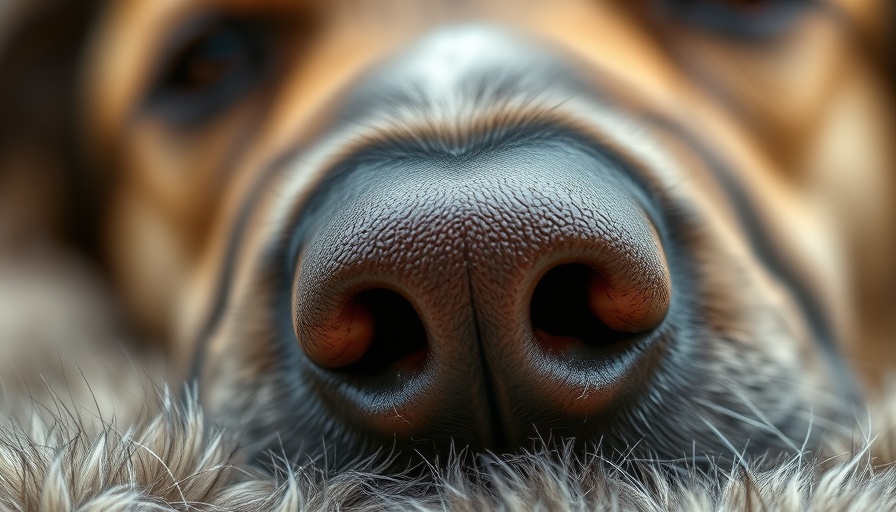
Understanding Why Dogs React Strongly to Scents
Dogs experience the world differently from humans, especially when it comes to smell. With an estimated 100 to 300 million scent receptors in their noses—compared to our mere six million—dogs possess an extraordinary ability to detect scents. While we only allocate about 5% of our brains to processing smell, approximately 40% of a dog's brain is devoted to this sense. This discrepancy explains their remarkable talent in tracking scents over vast distances, sometimes up to 12 miles away. However, this superior olfactory ability also means they can pick up on odors that we may find innocuous or even pleasant, such as a fresh lemon or a recently cleaned room, causing them discomfort or distress.
Top 10 Scents That Dogs Absolutely Detest
So, what are the specific smells that drive our beloved companions away in a hurry? Below is a list of the most reviled odors that dogs can’t stand:
- Citrus Smells: Many dogs have an aversion to citrus fruits. Whether it’s lemons, limes, or oranges, the tangy scent can be overwhelmingly unpleasant for them.
- Vinegar: This common household item is often used for cleaning, but its strong odor is a definite “no” for dogs.
- Alcohol: The scent of alcoholic beverages is not only rejected by dogs but can also be dangerous for their health.
- Chili Peppers: Spicy odors can irritate dogs’ sensitive noses, prompting them to flee.
- Essential Oils: Certain essential oils like tea tree oil and eucalyptus can be harmful to dogs and are commonly avoided by them.
- Chemical Cleaners: Cleaners with harsh chemicals, such as ammonia and bleach, lead to an instant retreat for most dogs.
- Mustard: This pungent condiment can also trigger a negative response from dogs.
- Perfume and Cologne: Strong fragrances are often too intense for a dog’s nose.
- Garbage Odors: Open trash cans filled with food scraps release odors that can overwhelm even the toughest canine noses.
- Fish: While some dogs might enjoy fish-flavored treats, the smell of actual fish can repulse many.
Understanding these aversions helps dog owners make informed decisions about the products they use at home. Opting for pet-friendly cleaners or avoiding strong scents while training can enhance your dog's comfort.
How Dogs' Olfactory Sensitivity Impacts Their Behavior
The strong reactions dogs have to certain smells significantly influence their behavior. For instance, if a dog discovers an odor they dislike, they may show signs of stress such as whining, hiding, or refusing to enter certain areas. Understanding this sensitivity is crucial, especially for trainers and owners attempting to create a safe and comfortable environment for their pets.
The Importance of Smell in Dog Training
In the context of training, recognizing the scents dogs dislike can help reinforce positive habits. Training sessions held in odor-free environments are likely to foster increased focus and engagement from a dog. Moreover, trainers can also utilize the information about scents to create a more efficient and enjoyable training process.
Paw-sitive Changes You Can Make at Home
With dog-focused training and care in mind, consider the following adjustments to enhance your dog's living environment:
- Switch to natural cleaning products that lack strong chemicals or fragrances.
- Store citrus fruits and strong-smelling food items securely away from your dog's reach.
- Be mindful of the perfumes and essential oils used in your household.
- Keep trash bins sealed tightly to avoid lingering odors that could upset your pet.
Conclusion: Enhancing Your Dog's Comfort
Being aware of the smells that your dog detests is a crucial step toward ensuring their comfort and well-being. By making thoughtful choices about the products and scents you use in your home, you can create a more harmonious living space for both you and your furry friend. If you’re keen on providing a nurturing atmosphere that respects their unique sensitivities, consider adopting these practices today. A happier, less stressed playmate awaits!
 Add Row
Add Row  Add
Add 




 Add Row
Add Row  Add
Add 

Write A Comment